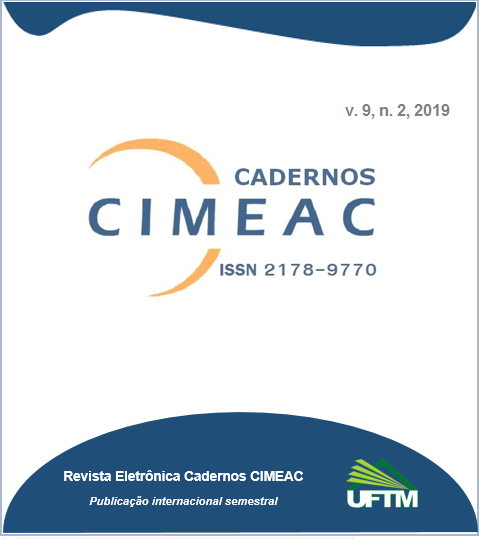A educação básica na Amazônia e seus indicadores de qualidade social: contradições e desafios para o Ensino Médio no Amapá / The basic education in the Amazon...
DOI:
https://doi.org/10.18554/cimeac.v9i2.3507Abstract
O Ensino Médio corresponde a um nível de ensino propício à construção da identidade, projetos de vida e trajetória profissional dos sujeitos. O objetivo deste trabalho é analisar o Ensino Médio no estado do Amapá, considerando a sua qualidade social, tendo como base os indicadores educacionais oficiais. Utilizamos o levantamento bibliográfico para analisar o ensino médio público brasileiro, suas características e a seus indicadores de qualidade; além disso, utilizaremos dados do INEP sobre os indicadores educacionais de rendimento do Ensino Médio amapaense em 2015, para o desenvolvimento de análises correlacionadas aos índices de Desenvolvimento Humano dos Municípios – IDHM, índice de GINI e o índice de Pobreza. Nossas análises evidenciaram que o Ensino Médio no Amapá, apresentou índices negativos em relação à zona urbana, pois as taxas de Reprovação e Abandono no ano de 2015 foram elevadas. Diferente da zona rural que demonstrou dados positivos referentes ao fluxo no Ensino Médio, no entanto com baixos indicadores de qualidade social. Os maiores centros urbanos do estado, mesmo com a melhor estrutura, não apresentaram os melhores índices de ensino. De forma geral, os dados relacionados ao ensino apresentam disparidades em relação aos índices de desenvolvimento social e humano.
Palavras-chave: Ensino Médio; Indicadores educacionais; Qualidade social; Amapá.
ABSTRACT: The High School corresponds to a level of education conducive to the construction of the identity, life projects and professional trajectory of the subjects. The objective of this study is to analyze the High School in the state of Amapá, considering its social quality, based on official educational indicators. We used the bibliographic survey to analyze the Brazilian public secondary education, its characteristics and its quality indicators; In addition, we will use INEP data on educational indicators of high school income in amapaense in 2015, for the development of analyzes correlated to the Human Development Indexes of Municipalities - IDHM, GINI index and the Poverty index. Our analyzes showed that the high school in Amapá had negative indices in relation to the urban zone, since the rates of Reprobation and Abandonment in 2015 were high. Different from the rural area that showed positive data regarding the flow in High School, however with low indicators of social quality. The largest urban centers in the state, even with the best structure, did not have the best levels of education. In general, data related to education show differences in relation to social and human development indexes.
Keywords: High School; Educational indicators; Social quality; Amapá.
Downloads
Published
Issue
Section
License
Os autores que publicam nesta revista concordam com os seguintes termos:
(a) Não cobramos dos autores para a publicação neste periódico.
(b) Autores mantém os direitos autorais e concedem à revista o direito de primeira publicação, com o trabalho simultaneamente licenciado sob a Licença Creative Commons que permite o compartilhamento do trabalho com reconhecimento da autoria e publicação inicial nesta revista.
(c) Autores têm permissão e são estimulados a difundir e a distribuir a versão publicada de seu trabalho online (ex.: em repositórios institucionais ou na sua página pessoal) após o processo editorial, já que isso pode aumentar o impacto e a citação do trabalho publicado (Veja O Efeito do Acesso Livre).
* * *
AUTHORS COPYRIGHT AND PUBLISHING RIGHTS
Authors who publish with this journal agree to the following terms:
(a) This journal does not charge authors for publication.
(b) Authors retain copyright and grant the journal right of first publication with the work simultaneously licensed under a Creative Commons Attribution License that allows others to share the work with an acknowledgement of the work's authorship and initial publication in this journal.
(c) For authors whose articles have been accepted: authors are permitted and encouraged to post their work online (e.g., in institutional repositories or on their website) after the publication of the text in Cadernos CIMEAC, as it can lead to productive exchanges as well as earlier and greater citation of published work (See The Effect of Open Access).

 10.18554/cimeac
10.18554/cimeac

